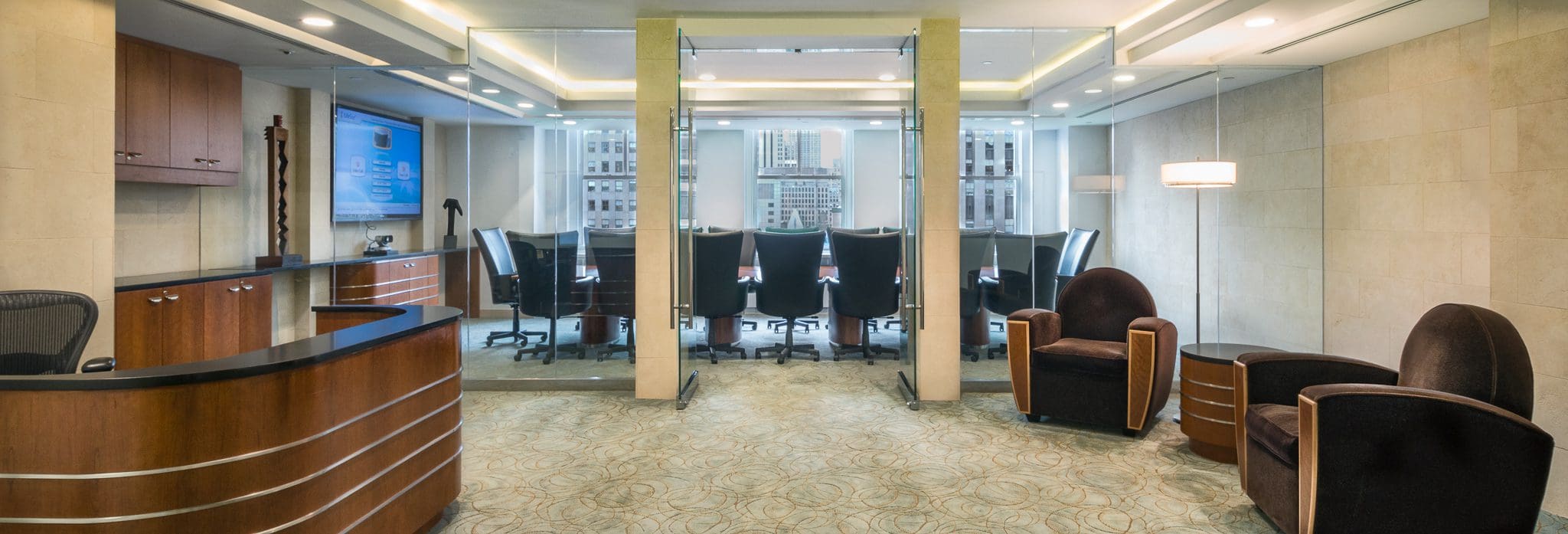How Does a Coworking Space Work? (There’s More to It Than Just a Desk)
The demand for coworking spaces is growing, and spaces are answering the call—there are currently more than 19,000 coworking spaces (and counting).
But why are so many coworking spaces popping up around the world? Convenience.
If you’re interested in the coworking trend, but aren’t exactly sure how it works, you’re not alone. Many freelancers, entrepreneurs, and business owners want to know more about the growing trend.
Read on to find out how coworking spaces work.
How Coworking Spaces Work
In a coworking space, a company rents office space in a building, completes the buildout, hires the staff, and brings in the infrastructure. They then offer that space out to the public, allowing business owners, workers, and freelancers to come in and use the offices, services, and meeting rooms.
The beauty of this model is that the end user, known as the members, do not need to commit to a long-term plan.
This makes coworking spaces appeal to those who don’t need a permanent office space, need to keep their overhead low, or are just starting out in their business journey.
In a coworking setup, the risk is on the primary company that rents the space. The members do need to make a commitment to the space they agree to—however, these terms are very short (usually one to three months at a time).
Coworking spaces also offer services that can benefit workers and business owners. Here are four ways a coworking space works for you:
Virtual Office Services
Remote work has disrupted the way we utilize office space. The remote workforce has transitioned from traditional offices to working from home.
However, many of those workers still need the business support they have become accustomed to. Coworking spaces offer virtual office services ona flexible basis.
For example, coworking spaces provide a business address, allowing business owners who run their businesses out of their homes to maintain privacy and avoid sharing their personal information.
A member can use the coworking space’s address and have their mail sent to the coworking space. A support team will them accept the mail, photograph it, and email pictures of it to the member. From there, a member can decide if they want the mail held, forwarded to their home office, discarded, or even opened for them.
Business phone numbers are another perk of coworking spaces. The coworking space can assign you a number with a local telephone number (like a 212-area code for Manhattan). They can answer the phone with their operators, then send the call to your home phone—or if you prefer, the call can simply be forwarded without an operator answering the call.
These services protect personal information and allow business owners to outsource services without hiring full-time staff members.
Meeting Rooms
Sometimes you don’t need a dedicated workspace—but you do need to conduct a meeting. Coworking spaces often offer meeting rooms, available by day or by the hour on a pay-as-you-go model.
This allows you to hold meetings in a professional setting whenever you need, without paying for a dedicated workspace you use infrequently.
The onsite support staff at a coworking space will make sure your meeting goes smoothly by greeting your guests, managing the IT, and even arranging for catering.
Coworking Space
Using a coworking space is simple and convenient. You pay one low cost-effective monthly rate—then, you show up with whatever you need to work.
You pick whatever desk is available in the coworking space, and work for as long as you need, for as many days as you want. When you are done, you take your materials home with you.
In most cases, you don’t have a dedicated desk—coworking is designed to be flexible and allow you to work only when you need it.
Many members only need an occasional break from their home office. Coworking operators typically offer day passes or multiday bundles to provide you with cost-effective service on the terms you need.
Private Office Space
Now more than ever, business operators are looking for ways to reduce their footprint and lower their overhead costs.
Coworking spaces provide the perfect solution, offering private offices for your convenience. These offices typically start at about 85 square feet and range all the way up to 400 square feet, so you can find the space that works for you and your team. You can also lease as many offices as you need.
Private offices are usually all-inclusive, which means you get access to the space, the services, and the staff. This makes it easy to lower your expenses and free up time to focus on your business. You don’t need to worry about security systems, cleaning crews, or IT—everything is covered by the space.
How Does a Coworking Space Work? Easy To Use and Flexible to Your Needs
The ultimate benefit to coworking spaces is flexibility—the future of work. You don’t need to lock yourself into long-term leases or pay for features of an office that you simply do not need.
Coworking spaces allow you to choose and pay for what works for you.
If you are still asking yourself how does coworking space work, contact Workspace by Rockefeller Group today to learn more.






